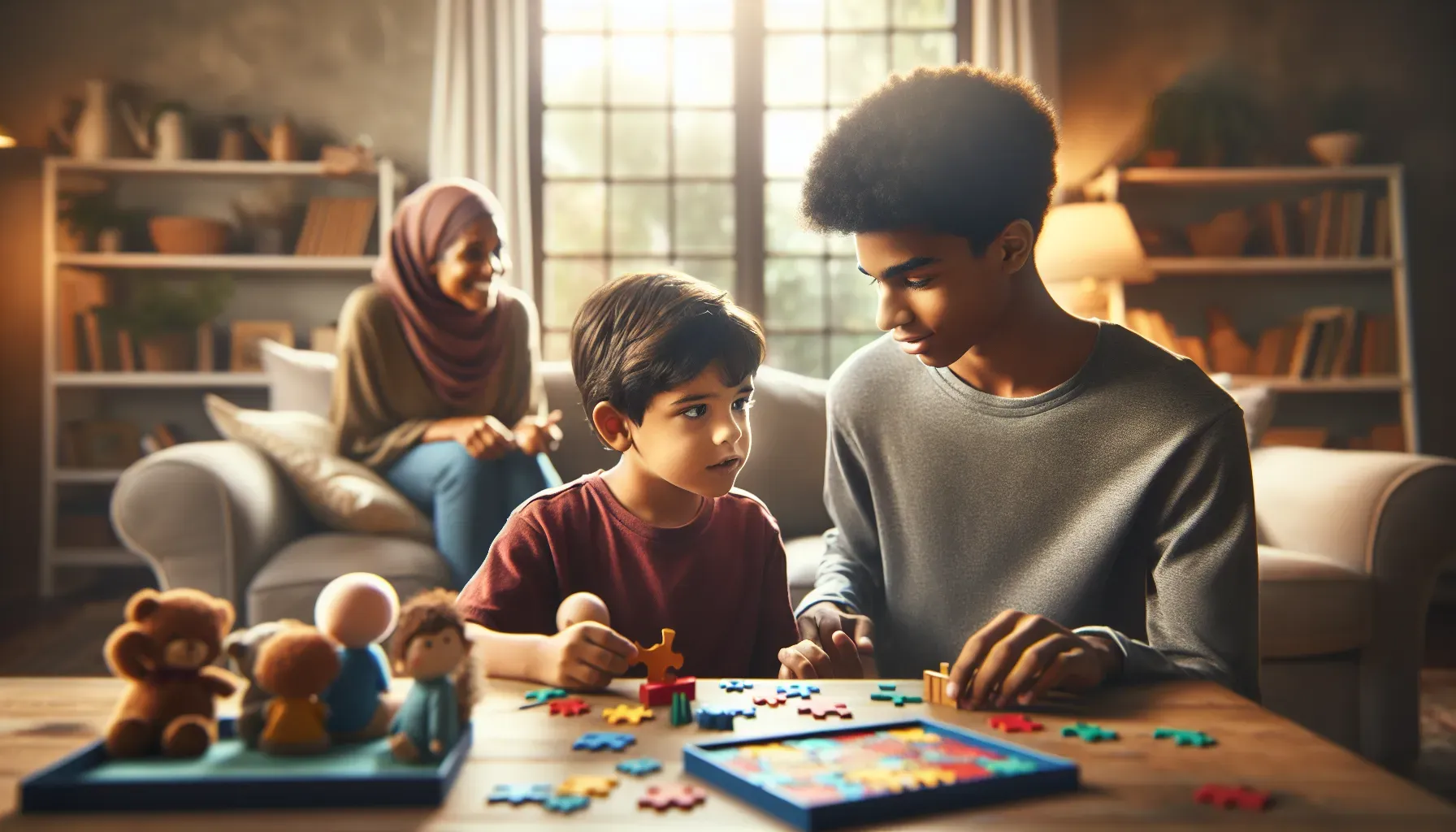Sibling Support: Nurturing Positive Sibling Relationships with an Autistic Brother or Sister

Siblings play a significant role in the lives of autistic children. While the love and support between siblings can be invaluable, it's important to recognize that having a sibling with autism can also bring about unique challenges. Understanding the impact of autism on siblings' dynamics and emotional well-being is crucial in creating an environment that fosters positive relationships within the family.
Understanding the Impact of Autism on Sibling Relationships
Autistic children often require additional support and attention, which may sometimes lead to the siblings feeling overlooked or misunderstood. Additionally, the communication and social interaction differences in autistic individuals can influence the way siblings interact with one another. These dynamics can create stress, frustration, or confusion for siblings, impacting their emotional well-being.
To address this, it is essential to educate siblings about autism and its effects. By promoting open discussions about autism within the family, siblings can develop a deeper understanding of their brother or sister's unique needs and perspectives.
Effective communication is key to nurturing positive sibling relationships with an autistic brother or sister. Encouraging open dialogue and active listening can help siblings empathize with one another's experiences. It's crucial for siblings to express their feelings, concerns, and triumphs in a safe and supportive environment.
Challenges Faced by Siblings of Autistic Children
Encouraging regular family discussions that include both parents and siblings can provide a platform for sharing experiences and fostering empathy. This practice not only helps siblings understand the challenges their autistic brother or sister may face but also allows the autistic child to feel heard and valued within the family dynamic.
By promoting effective communication, siblings can develop a stronger sense of connection, empathy, and understanding toward each other, strengthening their bond despite the challenges they may encounter.
Inclusive family participation plays a vital role in nurturing positive sibling relationships within the context of autism. It's essential for the entire family to engage in activities that accommodate the needs of all members, including the autistic child. This inclusivity fosters a sense of unity and belonging among siblings while promoting understanding and respect for each other's differences.
Related Article: Practical Tips for Creating an Autism-Friendly Home Environment
The Importance of Educating Siblings About Autism
Create opportunities for shared activities that cater to everyone's interests and abilities. By involving all family members in these activities, including those tailored to accommodate any sensory sensitivities or communication differences of the autistic child, you foster an environment where every sibling feels valued and included.
Building Empathy Through Effective Communication
Additionally, involving siblings in their autistic brother or sister's therapy sessions or educational activities can encourage collaboration and understanding. When siblings are included in these experiences, they gain insight into their sibling's unique challenges while also actively contributing to their development and well-being.
Promoting mutual respect and support within sibling relationships is integral to nurturing a positive environment for all family members. Encouraging mutual collaboration and problem-solving can reinforce these values while fostering a healthy dynamic among siblings.
Encouraging Open Dialogue Among Siblings
Highlighting each sibling's strengths and contributions within the family creates an environment where everyone feels appreciated and respected. Recognizing each sibling's individuality paves the way for mutual support as they navigate through various emotions and challenges associated with having an autistic sibling.
It's also beneficial to establish clear boundaries while encouraging cooperation between siblings. This helps in setting expectations for behavior while emphasizing mutual respect within their interactions.
Encouraging Inclusive Family Participation
Additionally, providing opportunities for one-on-one time with each sibling allows for deeper connections to form while honoring their individual needs for attention and understanding.
In conclusion, nurturing positive sibling relationships with an autistic brother or sister requires proactive efforts to foster empathy, inclusivity, understanding, respect, and support within the family dynamic. By recognizing the unique challenges faced by each family member, embracing open communication, and creating inclusive experiences, we pave the way for strong sibling bonds that endure through shared understanding and unwavering support.
Frequently Asked Questions
Siblings can support each other by fostering open communication and empathy. Encouraging discussions about feelings and experiences helps siblings understand each other's perspectives. Engaging in inclusive family activities that accommodate everyone's needs also strengthens their bond, allowing them to feel valued and connected despite the challenges they may face.
Promoting mutual respect involves recognizing each sibling's individuality and strengths. Establishing clear boundaries while encouraging cooperation helps set expectations for behavior. Additionally, providing opportunities for one-on-one time allows siblings to connect on a deeper level, fostering understanding and support within their relationship.
Effective communication is crucial as it nurtures empathy and understanding among siblings. By encouraging open dialogue, siblings can express their feelings and concerns in a safe environment. This practice helps them appreciate the unique challenges faced by their autistic sibling, ultimately strengthening their bond and family dynamics.
Check Out These Related Articles

Organizing Successful Outings: Proven Strategies for Enjoyable Trips with Autistic Children

Uniting Communities: Strengthening Family Support Systems for Autistic Children of Diverse Backgrounds

Sustainable Living with Autism: Eco-friendly Practices Tailored for Autistic Families
